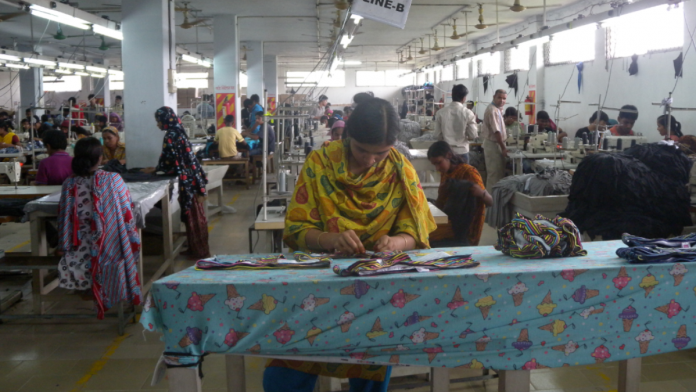Not only clothes, Bangladesh now really wants to export everything from electronics to jute

Image: Collected
Bangladesh, the world’s second-largest apparel exporter, is accelerating work to diversify it has the exports from one principal merchandise as it seeks to preserve it has the economic growth momentum, Financing Minister A good. H. M. Mustafa Kamal stated.
Readymade garments currently take into account a lot more than 80% of the nation’s total exports, with the majority of the shipments headed to either Europe or the U.S. The pandemic-induced global demand slump has already contributed to a slowdown in exports, making up about 15% of the economy. Primary Minister Sheikh Hasina’s government is now seeking to inspire exports of everything from electronics to jute.
“Right now, we are confronting challenges in the export sector on two fronts,” Kamal said in an email interview. “We are counting on a narrow export item basket” and few places, he said.
Diversification of exports assumes urgency for the South Asian country for reasons beyond the pandemic. Bangladesh, which is among the rare few economies to continue to keep expanding in a global struck by recession, is defined to jettison its least produced country position by 2024 - a classification that currently helps it be qualified to receive the European Union’s “Everything but Arms” trade package that grants duty-no cost, quota-free gain access to for all exports, except hands and ammunition.
While exiting the LDC category won’t quickly alter the favorable conditions of trade, the market could deal with hurdles when trying to forge new trade agreements going in advance, possibly hurting readymade apparel exports.
“To reduce such risks, the federal government wants to inspire exports of products which have high export potential but lack necessary capacity,” Kamal said.
The government has identified several products, such as for example pharmaceuticals, ship-building, furniture, jute and electronics, where it sees potential to grow exports. It possesses simplified shipment processes, permitting exporters sometimes to issue themselves the ‘Affirmation of Origin’ label to declare the foundation of their products. Target is also on boosting providers exports, the minister explained.
For now, the federal government has helped prop the trade sector through various stimulus methods, including a special fund for salary support to staff and employees of export-oriented manufacturing sectors.
The economy, which is likely to have expanded 5.2% in the year ended June, is sticking with its target of 8.2% progress in today's financial time. That’s faster compared to the 6.8% growth projection made by the Asian Production Bank for the period.
Should global economical recovery take period, the federal government will stand prepared to unveil more support steps, Kamal explained. The government’s support measures up to now total about $14.5 billion, or 4.34% of gross domestic merchandise.
“We assume that stimulus packages would be the crucial,” he said. “The federal government will lay increased emphasis on increasing the quantity and magnitude of its stimulus procedures.”
More fiscal steps can help have the pressure off the nation’s central bank, which earlier this year capped interest rates of all retail and commercial loans at 9% - a move regarded as a risk to health of finance institutions since it limits their capability to price in risks.
“The costs of funds for industries and services sectors have greatly been reduced,” Kamal said, adding that “further cuts in interest rate isn't being considered right now.”-
Source: https://theprint.in
Tags :
Previous Story
- Millers for limiting raw jute export citing flood...
- BJMC invites pvt investors to visit closed state-owned...
- Jute may make turnaround: Golden fibre emerges due...
- Jute to the rescue
- Jute Goods Research and Design Centre launched as...
- Glimmer of hope for Bangladesh's starving jute workers
- Value-added jute products
- Commerce department recommends extension of anti-dumping duty on...